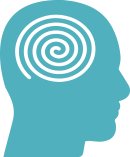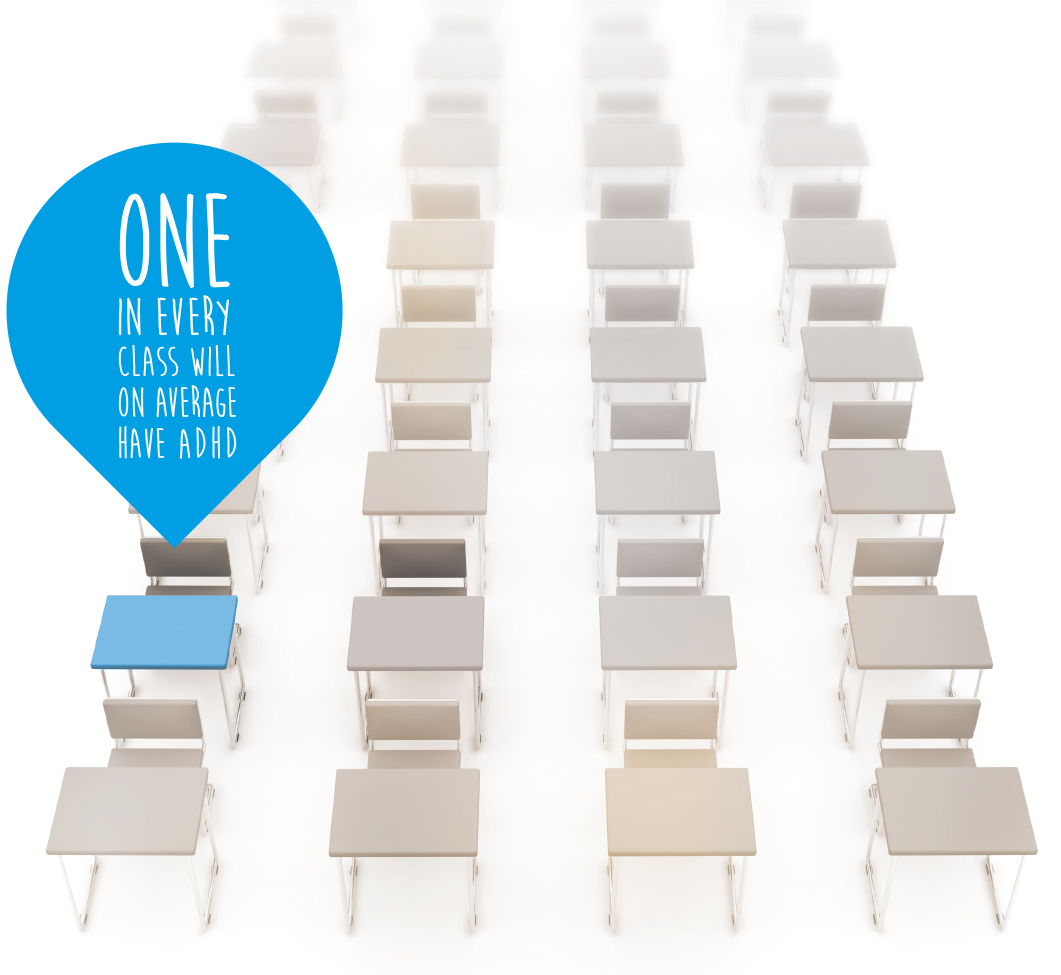What effect does ADHD have on my life?
 ADHD can impact your life in many ways. Have a look through the following list. Do any of them sound a bit like you?
ADHD can impact your life in many ways. Have a look through the following list. Do any of them sound a bit like you?
Then explore this website for advice on how to get help, either on your own, or with a parent, carer or teacher.
Attention issues – the ‘AD’ in ADHD
- Sometimes you find it hard to concentrate, other times you focus totally on things that interest you
- Maybe you’re easily distracted, or you can’t concentrate on a task
- You might also avoid doing things that need more focus
Hyperactivity – the ‘H’ in ADHD
 This is where you find it hard to sit still, or you drum your fingers, tap your feet, play with your hair, or just generally mess about
This is where you find it hard to sit still, or you drum your fingers, tap your feet, play with your hair, or just generally mess about
Impulsiveness
This means you can find it difficult to wait your turn, or be impatient
 Maybe you interrupt all the time or blurt out answers to questions or try to do something before you fully understand what’s needed
Maybe you interrupt all the time or blurt out answers to questions or try to do something before you fully understand what’s needed
Difficulties with social skills
- Having ADHD can make it harder to make and keep friends
- Perhaps you don’t fully understand how other people feel, or you make them feel awkward or uncomfortable
Being disorganised
 With ADHD, you might forget things that have been planned, missing appointments and forgetting equipment
With ADHD, you might forget things that have been planned, missing appointments and forgetting equipment
You may also not leave enough time to finish your work
Mood swings
ADHD may make you more sensitive to all the changes that happen as you grow up
 In turn, that can cause conflicts, confrontation, anger and frustration, which can sometimes make things worse
In turn, that can cause conflicts, confrontation, anger and frustration, which can sometimes make things worse
And now the good news…
By now you will be aware of the effects that ADHD has on your life. Firstly, what you need to know is that you are not alone – worldwide, around 5% of children and young people have ADHD. What this means is that in a class* of around 30 children, on average one or two will have ADHD.
This means that lots of people have gone through what you’re dealing with. Although it might not feel like it now, with the right help and some effort on your part, you can thrive with ADHD, do well at school and have a good time with your friends and family.
The key thing is if you feel like you need some help, make sure you talk to your parent, carer, teacher or doctor. They are there to support you.
*in a non-selective mainstream school

Useful Links
Patient support organisations
- ADHD Foundation – Young people – https://adhdfoundation.org.uk/
- Young Minds – ADHD and mental health – https://www.youngminds.org.uk/parent/a-z-guide/adhd/
- ADHD Solutions – https://www.adhdsolutions.org/
- The National Attention Deficit Information and Support Service (ADDISS) – https://www.addiss.co.uk
- Scottish ADHD coalition – https://www.scottishadhdcoalition.org
Professional organisations
- National Health Service – Overview ADHD – https://www.nhs.uk/conditions/attention-deficit-hyperactivity-disorder-adhd/
- National Institute for Health and Care Excellence (NICE) guideline NG87 – Information for the public – https://www.nice.org.uk/guidance/ng87/informationforpublic
You are now leaving www.adhdandyou.co.uk. You will be re-directed to an external website. Takeda accepts no responsibilty for the content of other websites.